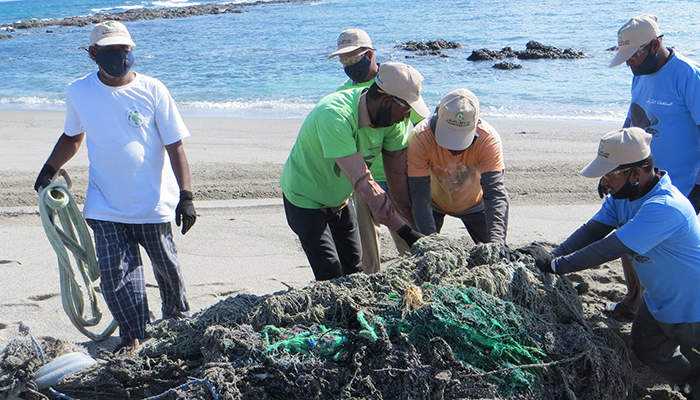
2021 has brought with it a sense of optimism and an increased confidence that this year will be much better than the last.
Last year, truth be told, brought to us many experiences we’ve never come across before, but helped us become more resilient and build the sort of character that only comes through resilience.
With the new year having just begun, social and educational organisations in Oman share their hopes on what 2021 brings to all of us.
Dr Baby Sam Saamuel, Chairman, Board of Directors of Indian schools in the Sultanate of Oman
Like all parents, students, and students themselves, we are eagerly waiting to be able to bring back our children to their schools and let them once again enjoy the comforts and benefits of social, in-person learning. With the advent of vaccinations, we hope that sometime next year, we shall be able to do so.
We are in the process of rolling out a new pilot initiative called the Happiness Curriculum, a supplementary social emotional learning (SEL) curriculum aiming to address the wellbeing and happiness of our students through emotional literacy. We are certain that this will make a huge difference to children, given the current situation globally.
Apart from these, once the schools open physically, we shall also be exploring the implementation of a hybrid, blended learning model, making the best use of the benefits offered by digitalization, giving children the best of both worlds. At the same time, we shall be ensuring children get their fair share of non-screen time.
Suaad Al Harthi, Programme Director, Environment Society of Oman
As Oman’s only non-profit organisation dedicated to conservation and environmental issues, we need all the help and support we can get from individuals and corporate partners alike.
We encourage everyone to get involved in whatever manner possible; be it becoming an ESO member, volunteering for our events, or organizing their own beach cleanup with friends. We ended 2020 with 356 individual members, 30 corporate partners and more than 20,000 followers on social media, and we would love to see those numbers go up in the coming year.
Ultimately, our goal is to protect and maintain Oman’s natural resources so that future generations are able to thrive. We have a lot planned for 2021 and we are excited to meet new members, further engage local communities and continue protecting Oman’s natural beauty.
Franziska Salem, Planning, Monitoring and Evaluation Officer, UNICEF Oman
The approval of a COVID-19 vaccine offers everyone hope that we may be able to put the pandemic behind us in the not-too-distant future. But it’s very important that everyone has access to vaccines – not just those in the wealthiest countries.
Next year, UNICEF will play a huge role in ensuring all countries have fair and affordable access to approved vaccines. UNICEF has agreed to procure and transport vaccines to 92 low-and lower-middle-income countries.
UNICEF estimates it can deliver two billion COVID-19 vaccines by the end of 2021 if such numbers are available, meaning all healthcare and social workers, and other vulnerable people globally will be protected from the disease.
It’s also very encouraging that the first doses of the vaccine have arrived in Oman and the Ministry of Health has started vaccinating the most at-risk groups, including those in the health sector and people suffering from chronic illnesses.
Ahmed Sulaiman Al Harrasi, Vice Chancellor for Research, University of Nizwa
The Natural and Medical Sciences Research Centre has more than 50 projects distributed in its 12 research laboratories in various disciplines of natural and medical sciences. Among these is a drug discovery project which focuses on searching for active natural drugs and antibiotics from Omani medicinal plants, marine sources and microorganisms.
We are currently continuing our collaboration with Ministry of Health by sequencing coronaviruses from infected healthcare workers who have been re-infected.
In genomics research, our biggest project though is with the Ministry of Agriculture, Fisheries and Water Resources, and involves research over mangoes, bananas, date palms, and various other areas. With the Diwan of the Royal Court, we are working on the genome sequencing of Arabian Tahr that is rare and on the IUCN Red [email protected]